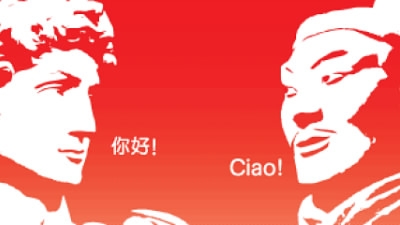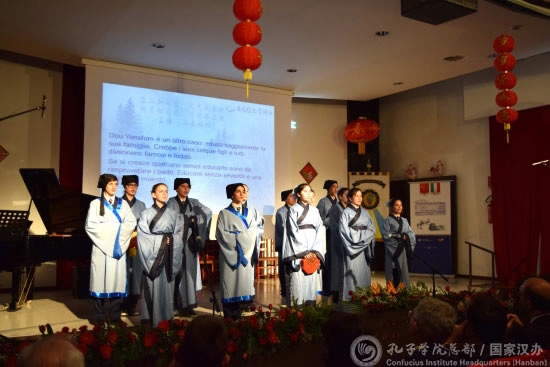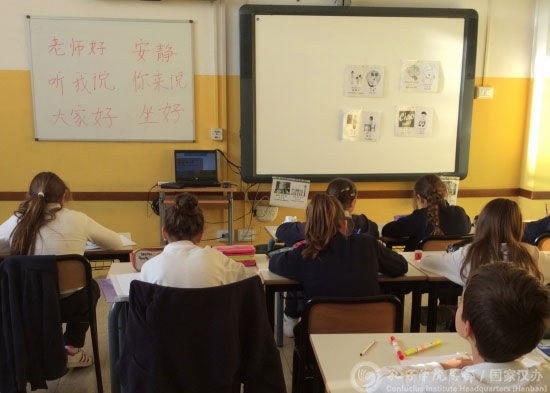
Culture
12:57, 06-Oct-2017
Growing number of Italian students are learning Chinese in high school
CGTN

An estimated 17,500 Italian students are studying Chinese in high school, according to a report by the National Observatory on School Internationalization and Student Mobility unveiled at the Italian Ministry of Education earlier this week.
The findings indicate a growing number of Italian students are choosing to learn Chinese.
The report was based on a survey by the Interculture Foundation and Ipsos market research firm on the status of Chinese instruction in the Italian school system and on how Italians aged between 14 and 18 perceive China.
It showed that 0.67 percent of Italy's high school students are studying Chinese in 279 out of 3,636 high schools surveyed.
57 percent of schools with Chinese on their curriculum require students to sit the written Chinese Proficiency Test (HSK) for non-native speakers and 41 percent have included Chinese among their state exam subjects.
Furthermore, 47 percent of schools surveyed said they intend to do so in the near future.
On the international student exchange front, some 500 Italian students went to China between 2003 and 2015, with 81 percent of those participating since 2008.

"The Sound of Reading" performed by students from the Confucius Classroom of Tivoli State School affiliated with the Confucius Institute at the University of Rome La Sapienza at 2017 New Year Concert. /Photo via hanban.org
"The Sound of Reading" performed by students from the Confucius Classroom of Tivoli State School affiliated with the Confucius Institute at the University of Rome La Sapienza at 2017 New Year Concert. /Photo via hanban.org
Three 17-year-old Italian exchange students were also on hand at the presentation of the findings in Rome.
Among them was Alessia who comes from the small town of Latina near Rome and who studied for 10 months in northeaster Chinese city of Harbin hosted by a local family.
Dressed in a white qipao, Alessia said she fell in love with China and called her host family members "mom, dad, and sister."
Matteo, also from Rome, studied Chinese in a Beijing boarding school for ten months.
He said that despite difficulties caused by cultural differences, he enjoyed the experience and considered it very useful.
For Matteo, learning Chinese is hard and it takes commitment and consistency.

Interest-oriented Chinese class of the Confucius Classroom of Tivoli State School affiliated to the Confucius Institute at University of Rome La Sapienza. /Photo via hanban.org
Interest-oriented Chinese class of the Confucius Classroom of Tivoli State School affiliated to the Confucius Institute at University of Rome La Sapienza. /Photo via hanban.org
International exchange students are ambassadors who build "cultural, friendship and professional bridges," said Interculture Foundation president Roberto Ruffino.
Interculture started bilateral student exchanges with China 20 years ago when three Italian students traveled to study there.
Today, 108 Italian students are spending a year in China, Ruffino said.
Sinologist Marco Croce, who is in charge of the exchange program with China, said he hopes for an increasingly culturally open China and for more Chinese exchange students in Italy.
China will become so important in the near future that it will be crucial to learn its language and culture, he said.
There are about 20,000 Chinese students in Italy and some 6,000 Italian youngsters studying in China, he added.
8135km
Source(s): Xinhua News Agency

SITEMAP
Copyright © 2018 CGTN. Beijing ICP prepared NO.16065310-3
Copyright © 2018 CGTN. Beijing ICP prepared NO.16065310-3